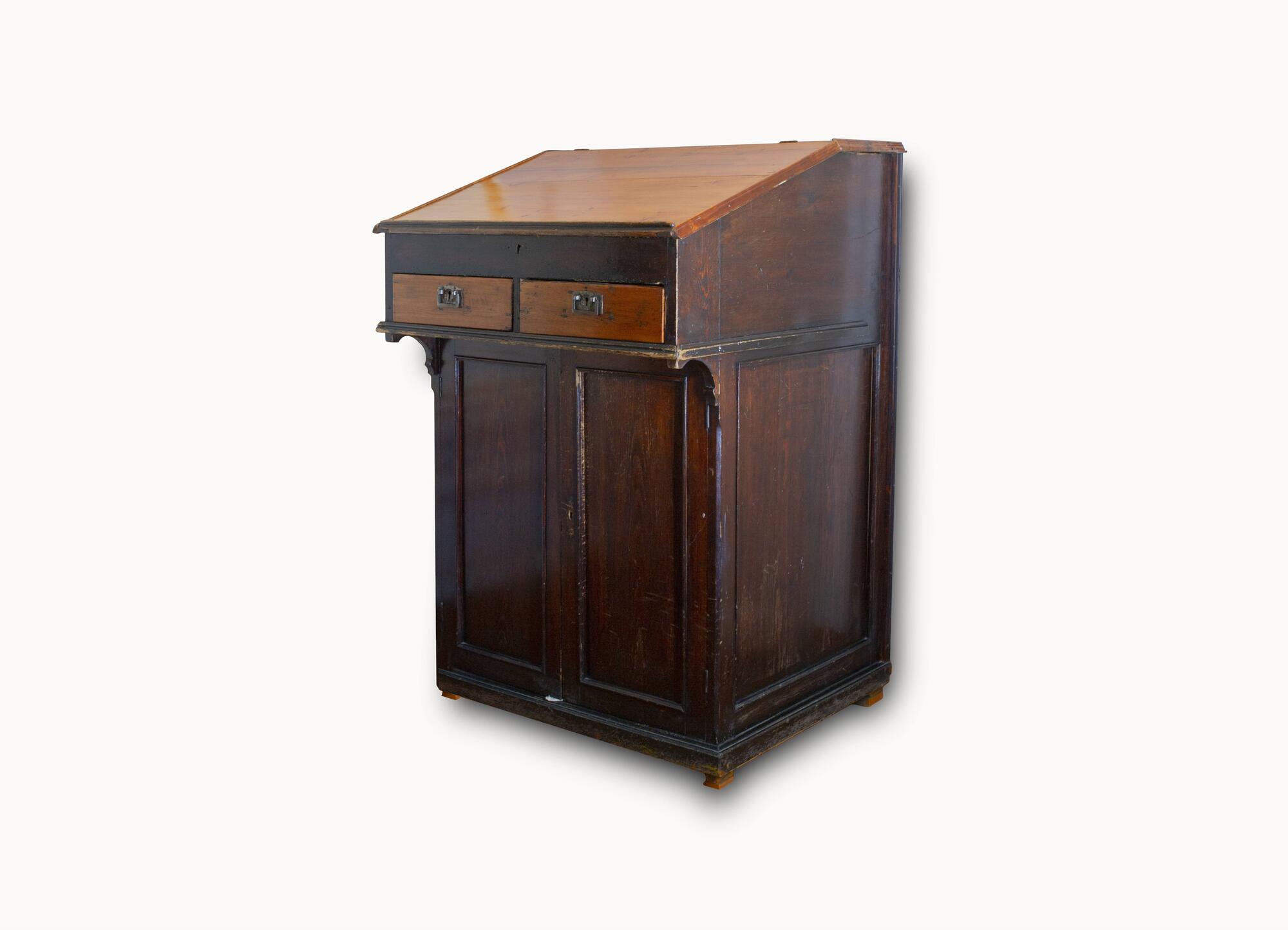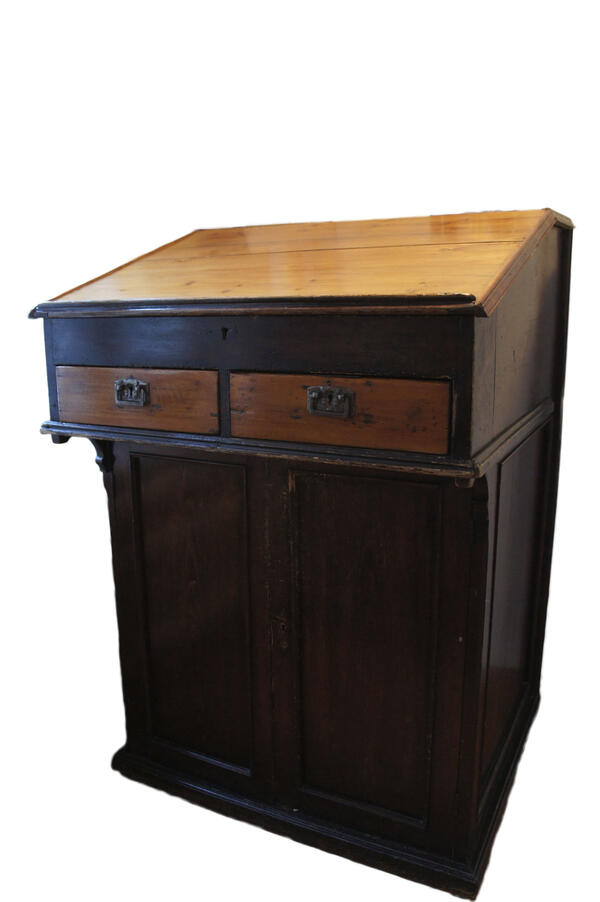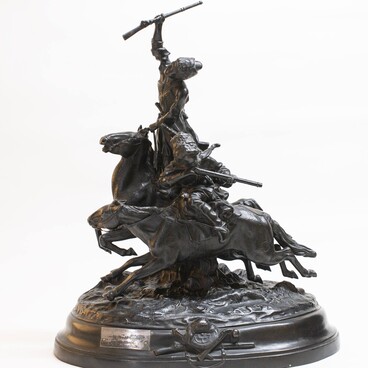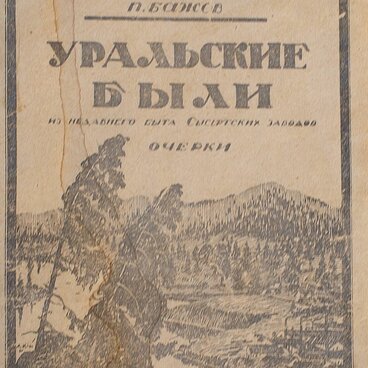A tall wooden standing desk — a writing table — is considered the central exhibit of the memorial museum, as it was the tool that helped Pavel Petrovich Bazhov in creating most of his tales.
The standing desk as a piece of furniture came to Russia during the reign of Peter the Great. It differed from the ordinary table in its size and slanted surface: to work at it, the owner was supposed to stand behind it or use a high chair. This is how many famous writers created their works: Pushkin, Gogol, Zhukovsky and so on.
Bazhov also wrote while standing, and mostly at night. Valentina Alexandrovna, the writer’s wife, mentioned many reasons for this routine. During the day, Bazhov was constantly engaged in social and to some degree literary activities: he worked at a publishing house and cooperated with newspapers and magazines; in the 1940s, in wartime conditions, he headed the Sverdlovsk branch of the Soviet Writers’ Union. In addition, as a deputy, he had to give public speeches.
Pavel Petrovich devoted a lot of time to exchanging letters, maintaining the wooden house in which he and his family lived, and their land where they had a garden. Therefore, he had very little time for his own creativity, mainly, at nighttime. Bazhov chose a standing desk for convenience, since the complex process of creating plots, characters, and most importantly, selecting the right words and expressions, was best carried out while walking. The writer worked, strolling along the corridor with a pipe.
According to the memoirs of family members and numerous guests of the house, the standing desk belonged to Bazhov’s father, Pyotr Vasilyevich, as well as a small table that stood in the writer’s office. Bazhov Senior, who had worked in hot workshops at Ural factories for a long time, was engaged in administrative work in the last years of his life. Therefore, such a piece of furniture was necessary for him to do paperwork.
Both exhibits — the standing desk and the small table — were made by Sysert artisans. The writer moved them to Yekaterinburg along with many other things from Sysert, his native Ural mining town, after the sale of his parents’ house.
The standing desk as a piece of furniture came to Russia during the reign of Peter the Great. It differed from the ordinary table in its size and slanted surface: to work at it, the owner was supposed to stand behind it or use a high chair. This is how many famous writers created their works: Pushkin, Gogol, Zhukovsky and so on.
Bazhov also wrote while standing, and mostly at night. Valentina Alexandrovna, the writer’s wife, mentioned many reasons for this routine. During the day, Bazhov was constantly engaged in social and to some degree literary activities: he worked at a publishing house and cooperated with newspapers and magazines; in the 1940s, in wartime conditions, he headed the Sverdlovsk branch of the Soviet Writers’ Union. In addition, as a deputy, he had to give public speeches.
Pavel Petrovich devoted a lot of time to exchanging letters, maintaining the wooden house in which he and his family lived, and their land where they had a garden. Therefore, he had very little time for his own creativity, mainly, at nighttime. Bazhov chose a standing desk for convenience, since the complex process of creating plots, characters, and most importantly, selecting the right words and expressions, was best carried out while walking. The writer worked, strolling along the corridor with a pipe.
According to the memoirs of family members and numerous guests of the house, the standing desk belonged to Bazhov’s father, Pyotr Vasilyevich, as well as a small table that stood in the writer’s office. Bazhov Senior, who had worked in hot workshops at Ural factories for a long time, was engaged in administrative work in the last years of his life. Therefore, such a piece of furniture was necessary for him to do paperwork.
Both exhibits — the standing desk and the small table — were made by Sysert artisans. The writer moved them to Yekaterinburg along with many other things from Sysert, his native Ural mining town, after the sale of his parents’ house.



